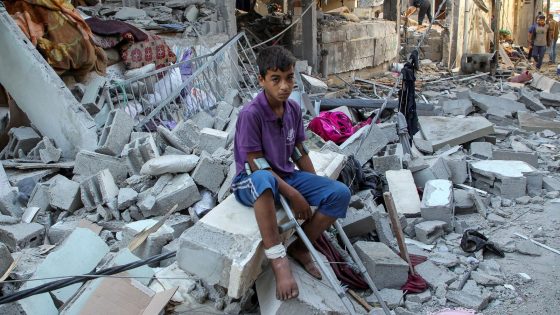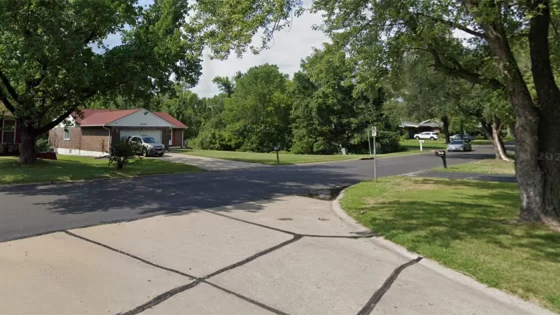South Africa has told a UN court the situation in Gaza is at a “new and horrific stage” – as it tries to convince it to order a ceasefire and stop Israel’s operation in Rafah.
It was the third time the International Court of Justice (ICJ) has held hearings on Gaza since December, when South Africa first accused Israel of genocide.
“Seven months ago South Africa could not have imagined that Gaza would be largely wiped off the map,” the country’s ambassador to the Netherlands, Vusimuzi Madonsela, told judges.
Israel denies allegations of genocide and says it takes great care to avoid civilian casualties as it seeks to destroy Hamas following its devastating October attack.
However, South Africa believes Israel’s military operation has far exceeded acceptable self-defence.
“Israel’s actions in Rafah are part of the end game. This is the last step in the destruction of Gaza,” lawyer Vaughan Lowe told the 15-judge panel at The Hague.
South Africa called Israel’s offensive in the southern city a “brutal military attack on the sole remaining refuge for the people of Gaza”, and said the court’s previous orders had made no difference.
Ambassador Madonsela urged judges to order Israel to “totally and unconditionally withdraw” from the Gaza Strip.
More than a million people are estimated to have originally fled to Rafah from the destruction in northern parts of Gaza.
But as Israeli attacks in Rafah intensify, about half have now left for other areas – including to bombed-out homes they previously abandoned.
In January, the ICJ ordered Israel to do all it could to guard against deaths, destruction and any acts of genocide but didn’t tell it to end the fighting.
Another order in March said the country should take steps to improve the humanitarian situation – with many Gazans also dealing with chronic food shortages.
Thursday’s court hearing came as the US said it had anchored a floating pier to receive much-needed aid at a Gaza Strip beach.
The United Nations welcomed the move but said land entry points were a faster way to get aid in.
Israel’s operation in Rafah has virtually halted aid via the southern border and famine is a “clear and present danger”, said UN humanitarian affairs chief Martin Griffiths.
“Stocks of food which were in place already in southern Gaza are running out. I think we’re talking about almost none left,” he told Reuters news agency.
“And so the humanitarian operation is stuck, it’s completely stuck. We can’t do what we want to do.”
Read more:
Satellite images show speed and scale of Rafah evacuation
Israel orders residents from more areas of Rafah to evacuate
Eyewitness: Israeli protesters block aid going into Gaza
Israel has blamed UN agencies for not distributing aid more efficiently and creating backlogs of supplies.
It says it had killed more than 100 Hamas fighters since it began a ground operation in Rafah last week – which officials say is intended to destroy the group’s presence there and rescue hostages.
Military spokesman Lt. Col. Nadav Shoshan said on Thursday they had also found tunnel shafts under and near the city’s border crossing with Egypt.
Many Western countries warned of devastating consequences if Israel expanded operations in Rafah, with President Biden saying the US wouldn’t provide some weapons if it went ahead.
So far, it doesn’t appear to be a full-scale invasion but the UN says hundreds of thousands of people have still fled.
The offensive could escalate, however, after the Israeli defence minister visited on Wednesday and warned “additional forces will enter” and “we are wearing Hamas down”.
Gaza’s health ministry says more than 35,000 people have died so far, while about 1,200 were murdered in the 7 October Hamas attack that triggered the war.
Several hundred Israelis were also taken hostage, with immense pressure at home for the government to agree a ceasefire deal to free them.
Source Agencies








